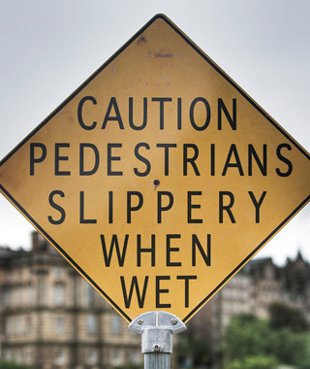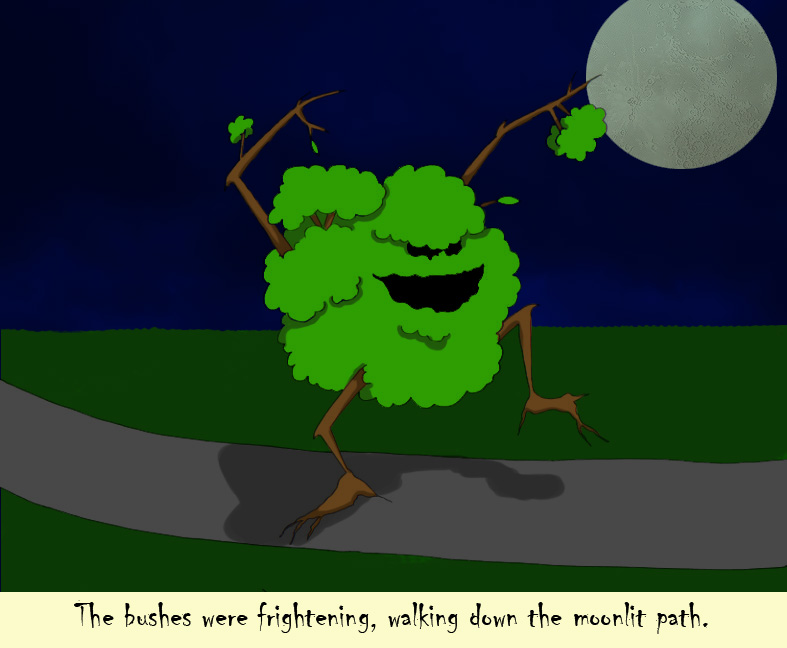Dangling modifiers appear in our everyday speech, in the media, and even on street signs:
Grammatically, this sign is warning drivers that pedestrians are slippery when wet. I wouldn’t really say that pedestrians become slippery when wet, but even if they do, the slipperiness of a pedestrian does not merit the existence of a cautionary road sign. However, the intent of the sign is to advise drivers to watch out for pedestrians because the roads can be slippery when wet and thus the likelihood of hitting a pedestrian is much greater.
The confusion and hilarity of this sign comes as a result of a dangling modifier. A dangling modifier fails to refer logically to any word in the sentence. In this case, “slippery when wet” does not logically refer to pedestrians or any other word on the sign. The good thing about dangling modifiers is that they are easy to fix once you have discovered them. The sign could easily read…
- Caution – Road Slippery When Wet
- Watch For Pedestrians
- Watch For Pedestrians When Road Is Wet
- If The Road Is Wet, You Are More Likely To Hit A Pedestrian, So Pay Attention
or any number of logical phrases. In order for these other options to work, I had to directly state what was slippery or wet by adding the word “road”.
What to remember in order to avoid or fix a dangling modifier:
• Name the person, place, or thing that your modifier (the descriptive phrase, such as “slippery when wet”) is referring to.
Let’s take a look at another hilarious example.
As the illustration shows, the sentence “Waiting for the bus, the time went by slowly,” means that the time is what is actually waiting for the bus because the sentence doesn’t explicitly say who is waiting for the bus. This can be fixed by saying
As I waited for the bus, the time went by slowly.
or
Waiting for the bus, I felt like the time went slowly.
Both of these sentences show who was waiting for the bus and that the only thing time does is go slowly.
Here’s another!
Again we have a dangling modifier situation illustrated in the sentence above. It causes confusion because the sentence does not state who is walking down the moonlit path. Thus a simple solution to the sentence is to say
The bushes were frightening to me as I walked down the moonlit path.
or
I was frightened by the bushes as I walked down the moonlit path.
Now that we have a clear subject and know who was walking down the path, the sentence makes sense and the modifier logically refers to the appropriate word.
Even though we have had some good laughs at the expense of dangling modifiers (if you haven’t had enough laughs here are some more), remember to watch out for dangling modifiers in your own writing so that you don’t become the subject of laughter.
Sarah, peer tutor


